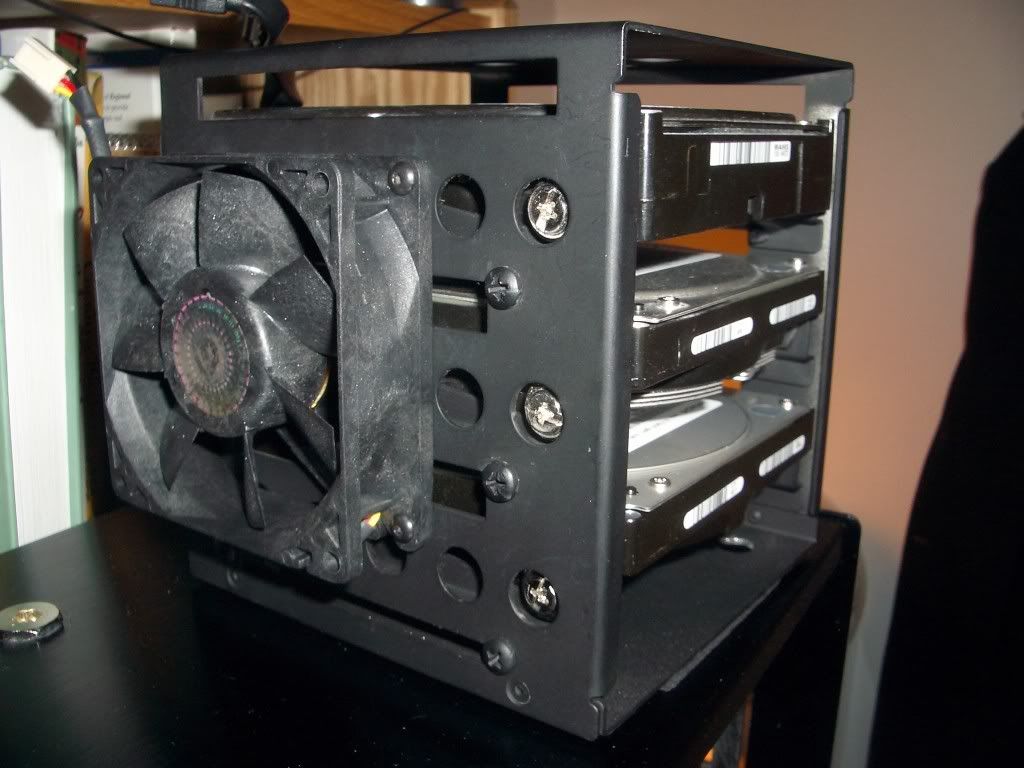So I've been juggling some data around on my backup drives (using a SATA hot-swap rack), and after waiting for the drives to spin down, some models were still quite hot. I realized that I could sandwhich the hot drive between some cool ones and the hot one would cool much faster than just in an ambient setting.
I was wondering if a cheap and silent way to cool one's hard drives would be to sandwich powered on "hot" drives between old, dead hard drives. It would be interesting to see how drive temperatures are vs. the normal case design where a 120 or 140mm fan blows over the drive vs. fan +stacked drives. My current case allows for 5 SATA drives, but I put my drives in slots 2 and 4, which maximizes airflow over the drive and prevents the two drives from heating each other up. If the concept works, I think it'd be a nice and cheap way to make use of old hard drives.
If someone wants to carry out this experiment, and would like to write back on your findings, I've got a $5 bounty for such a study. There just aren't that many heatsinks that are like the ones for the Velociraptor (but in a 3.5in size). Attaching Velociraptor heatsinks onto 3.5in drives would be a great way to cool your drives...someone should start selling them separately.
Ooh, and BTW, I switched to a RAID0 array with Samsung F1s, and they are SOOO incredibly quiet and cool. I used to use one for backup purposes, but never noticed how cool they ran. Beats the hell out of my Hitachi Deskstar+Seagate 7200.10 setup. Both were hot like fireballs.
I was wondering if a cheap and silent way to cool one's hard drives would be to sandwich powered on "hot" drives between old, dead hard drives. It would be interesting to see how drive temperatures are vs. the normal case design where a 120 or 140mm fan blows over the drive vs. fan +stacked drives. My current case allows for 5 SATA drives, but I put my drives in slots 2 and 4, which maximizes airflow over the drive and prevents the two drives from heating each other up. If the concept works, I think it'd be a nice and cheap way to make use of old hard drives.
If someone wants to carry out this experiment, and would like to write back on your findings, I've got a $5 bounty for such a study. There just aren't that many heatsinks that are like the ones for the Velociraptor (but in a 3.5in size). Attaching Velociraptor heatsinks onto 3.5in drives would be a great way to cool your drives...someone should start selling them separately.
Ooh, and BTW, I switched to a RAID0 array with Samsung F1s, and they are SOOO incredibly quiet and cool. I used to use one for backup purposes, but never noticed how cool they ran. Beats the hell out of my Hitachi Deskstar+Seagate 7200.10 setup. Both were hot like fireballs.
![[H]ard|Forum](/styles/hardforum/xenforo/logo_dark.png)
